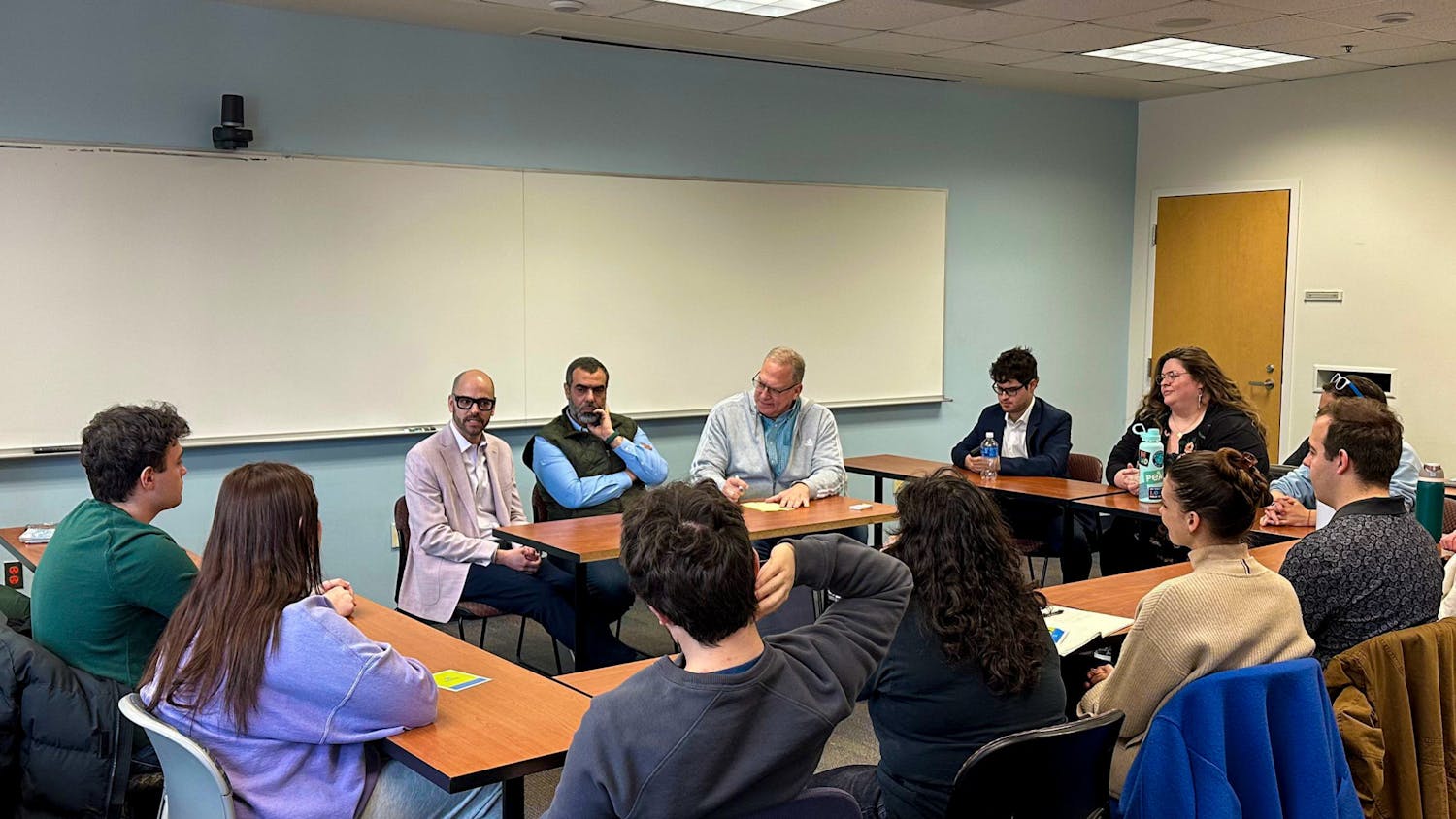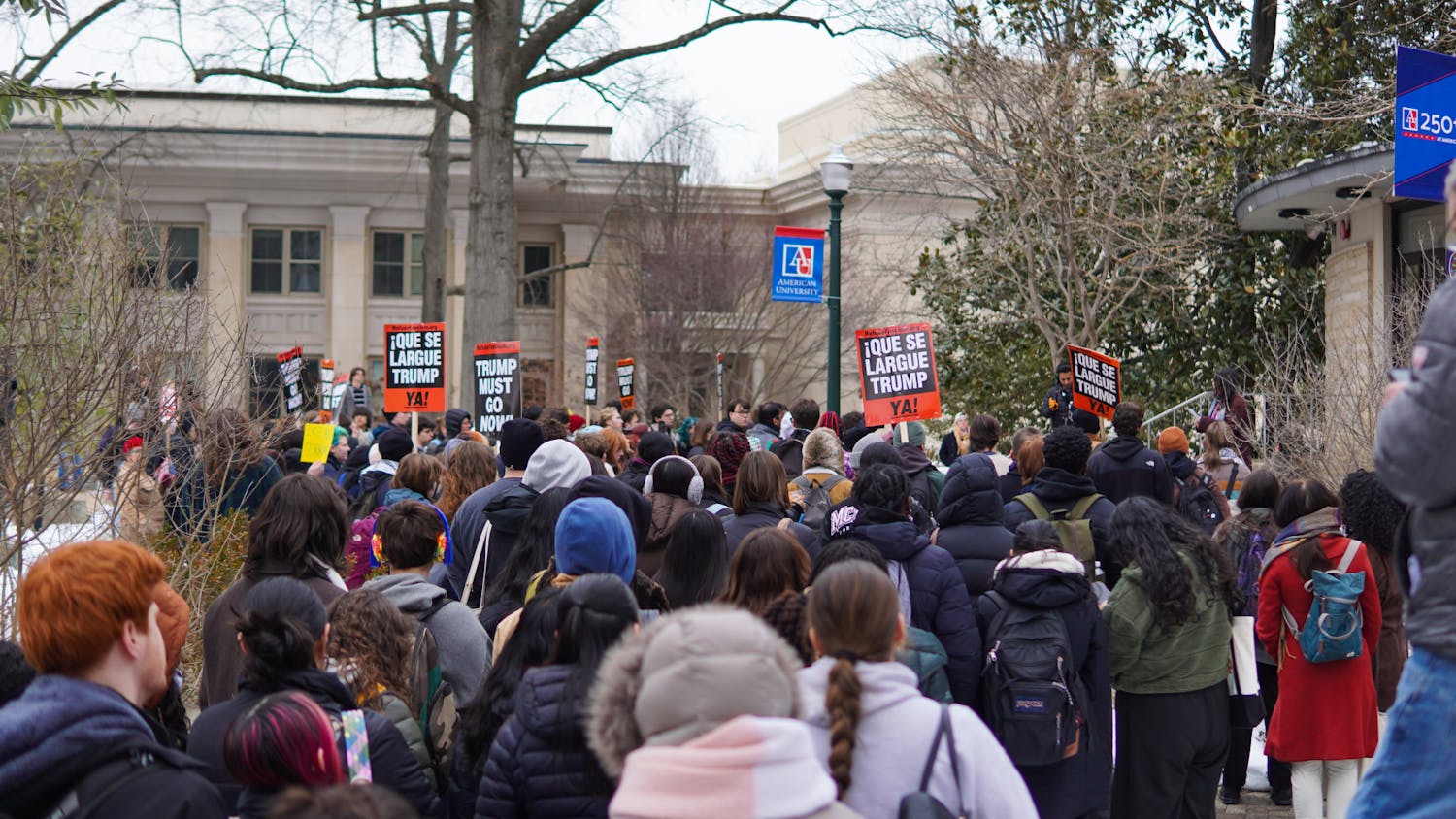The aftermath of Hurricane Katrina, one of the biggest weather disasters in United States history, has disrupted the lives of thousands across the Gulf Coast region including hundreds of college students trying to salvage their semesters at other schools."
New Orleans, a city mostly below sea level, was hit hardest by the storm. Officials estimated 80 percent of the city is underwater, which is as deep as 20 feet in some places. Army engineers worked Tuesday and Wednesday to stop the flow of water as it consumed buildings, homes and lives.
"We know there is a significant number of dead bodies in the water, and other people dead in attics," Mayor Ray Nagin said in a USAToday.com article. Asked how many, he said, "Minimum, hundreds. Most likely, thousands."
Many public officials expect New Orleans to be uninhabitable for two to three months, leaving many students unable to attend school for a semester.
AU has received inquiries from Tulane students wishing to transfer to AU to continue attending college.
"Tulane shares applications with AU, and we are always willing to adhere to students' needs," said Julie Weber, executive director of housing and dining. "Imagine just starting college and moving in and having to leave the next day."
Weber advised students to be understanding of late arriving roommates and classmates.
Many students who are unable to go home are being moved to other schools. According to an Associated Press article, more than 100 Tulane students arrived at Southern Methodist University Wednesday, including the entire Tulane football team.
Christine Martinsen, a senior at Loyola University of New Orleans, was driving back to school from Houston when she received word the city was being evacuated, and so she returned home to wait for the storm to pass.
"My school already had an established hurricane plan," Martinsen said. "We were originally only supposed to be closed for two days, but now I'm not very sure of anything."
Martinsen, who grew up in New Orleans, remembers living through Hurricane Andrew. "It hit in third grade but I don't remember the damage being as bad as Katrina," Martinsen said.
Martinsen describes the scene as "utter devastation."
"I've seen so many pictures of people stuck on their roofs...I heard the Superdome's roof was flying off, all of the Hyatt Hotel's windows were completely gone and I-10 is completely destroyed," Martinsen said. "What's interesting is that the building where my parents work is completely intact."
Martinsen, who participated in the Washington Semester Program in the spring of 2004, most likely will not return to school this semester.
President Bush cut his Crawford, Texas vacation short in order to return to Washington to aid Katrina relief efforts. According to washingtonpost.com, when flying over the affected areas, Bush said "It's devastating. It's got to be doubly devastating on the ground." Bush warned that recovery from the storm could take years.
The Pentagon plans to dispatch Navy warships in order to begin the biggest search-and-rescue operations that the U.S. has ever seen. The ships will provide water and other emergency supplies to stranded civilians.
Bush announced formally Tuesday that the Department of Energy is planning to receive oil on loan from the federal Strategic Petroleum Reserve to oil refineries. Many refineries were demolished in the wrath of the hurricane.
According to thewashingtonpost.com, Bush said the Environmental Protection Agency also is temporarily waiving clean-air fuel standards nationwide, allowing the sale of larger quantities of gasoline and diesel fuel.
Katrina, which hit the United States early Monday morning rivaled Hurricane Camille which hit in 1969.
"I'm fairly new to the field, but this is one of the most powerful storms I've ever seen, one that only comes along once in a lifetime," said John Feerick, accuweather.com meteorologist. "I don't think many of us have seen such devastation."
Feerick compared Katrina to Hurricane Andrew, which hit in 1992 and caused millions of dollars worth of damage to the state of Florida.
"The conditions were more than favorable for such a large hurricane," Feerick said. "The Gulf Coast waters were 86 to 89 degrees, basically bathwater."
Hurricane Katrina also affected many AU students who live in the affected areas.
"My sister Ashley lives in New Orleans," said Mark Stern, a junior in the School of Communication and president of the class of 2007. "An emergency worker came to her house and told her husband and her to take what is most valuable to them and leave."
Stern's sister and her family are safe at home with Stern's parents in Alabama.
"This past summer, my family and I went to Biloxi, Mississippi for a family reunion and now everything's just destroyed," Stern said.
Sara Wilson, a sophomore in the School of Public Affairs, lives in Louisiana. "My family normally evacuates when there is any indication that a hurricane is coming our way, so they left and drove to Dallas," Wilson said. "My dad works in New Orleans and he won't really be able to go back to see how his company's building has weathered the storm for two to three months."
Brett Wilson, a junior in the College of Arts and Sciences, lives in New Orleans. "I saw pictures just off the highway that I usually drive on at an overpass that's usually 20 feet high and it was covered right up to the bottom of the overpass," Wilson said. "My family was also lucky--my mother, father and baby sister were house-hunting in Chicago."
Many weather forecasters are warning of a continued potent hurricane season. According to Feerick, the hurricane season is only halfway over.
"The season typically ends on November 30, with the peak being September 10," Feerick said. "There is a very real possibility of another major hurricane or two, but it is uncertain whether it will hit the United States."
Staff Writers Lauren Gardner and Megan Slack contributed to this article.




